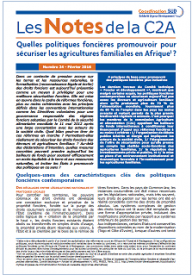Le pastoralisme, un mode de vie résilient face à de nombreux défis
L’élevage pastoral et agropastoral (ou pastoralisme) est un système de production basé sur un élevage extensif valorisant majoritairement les parcours naturels. Utilisé par des communautés qui vivent dans des contextes souvent marginaux, il est associé à un mode de vie fondé sur un lien particulier entre l’homme, l’animal et la nature.



